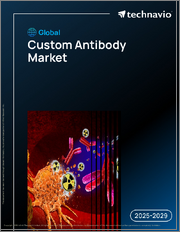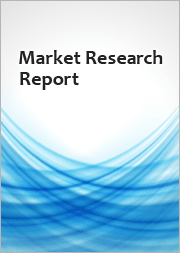
|
시장보고서
상품코드
1831558
CD276 표적 치료제 시장 : 임상시험과 시장 기회(2026년)Global CD276 Targeted Therapies Clinical Trials & Market Opportunity Insight 2026 |
||||||
세계의 CD276 표적 치료제 시장 : 임상시험과 시장 기회(2026년) 보고서의 조사 결과 및 주요 내용
- 2028년까지 첫 CD276 치료제 승인 예상
- CD276 표적 치료제의 지역별, 적응증별 개발 동향
- 향후 5년 내 세계 CD276 표적 치료제 승인 전망
- 임상시험 중인 CD276 표적 치료제 : 30개 이상의 치료제
- CD276 표적 치료제 개발에 참여하는 18개 기업에 대한 인사이트
- CD276 표적 치료제의 희귀질환용 의약품 및 우선심사품목
- CD276 표적 치료제 세계 임상시험 : 기업별, 적응증별, 임상단계별
CD276 표적 치료제 : 종양학 파이프라인 전반에 걸쳐 추진력이 강화
CD276(B7-H3)은 면역종양학에서 가장 흥미로운 차세대 표적 중 하나입니다. 광범위한 고형암에서 균일하게 과발현되고 정상 조직에서는 극히 미미하게 발현되기 때문에 정밀의료의 타겟으로 매우 바람직합니다. 업계가 1세대 체크포인트 억제제에서 보다 종양 특이적인 전략으로 전환하는 가운데, CD276은 전 세계 신약 개발 파이프라인에서 속도를 내고 있습니다.
본 보고서는 부상하고 있는 CD276 표적 치료제 시장에 대한 집중적인 관점을 제공합니다. 이 보고서는 CD276 표적 치료제 시장, 주요 임상 프로그램, 주요 상업적 제휴, 이 분야의 기술 혁신을 촉진하는 기술 등을 조사했습니다. 이 보고서에는 자세한 임상시험 결과나 데이터는 없지만, 이 보고서의 스냅샷을 통해 빠르게 부상하고 있는 이 분야를 변화시키고 있는 주요 전략 방향과 신생 기업들을 확인할 수 있습니다.
이 보고서에 포함된 CD276 표적 치료제 임상시험에 대한 인사이트
CD276 표적 치료제 파이프라인은 항체약물접합체(ADC), CAR T세포 치료, 이중특이성항체에 중점을 두고 지속적으로 성장하고 있습니다. 소세포폐암(SCLC), 전이성 거세저항성 전립선암(mCRPC), 신경교종, 두경부암 등 치료하기 어려운 암을 타겟으로 하는 여러 후보물질이 중기-후기 임상시험 단계에 있습니다.
예를 들어, 다이이찌산쿄와 머크의 ADC 약물인 Ifinatamab Deruxtecan은 토포이소머라제 i 페이로드를 사용하여 광범위한 병기의 SCLC를 대상으로 임상 3상이 진행 중입니다. 한편, 브레인차일드바이오는 CD276 표적 CAR T세포 치료제 중 하나인 CD276 표적 CAR T세포 치료제를 소아 뇌종양을 대상으로 한 중요한 임상시험을 진행하고 있으며, 이미 규제 당국의 승인을 받은 상태입니다. 이러한 프로그램 및 기타 프로그램은 표적의 보다 성숙한 임상적 확인으로의 전환을 의미합니다.
제휴 및 계약
이러한 상업적 신뢰의 증가는 새로운 라이선싱 계약과 전략적 파트너십에서도 확인할 수 있습니다. 많은 다국적 제약사들이 CD276을 표적으로 하는 ADC의 권리를 확보하기 위해 특히 초기 임상 결과에서 견고한 종양 반응과 내약성 및 안전성 프로파일이 입증된 경우, 고액의 계약을 체결하고 있습니다.
대표적인 예로, Minghui Pharmaceutical과 Qilu Pharmaceutical이 2024년에 체결한 MHB-088C에 대한 2억 달러 이상의 세계 판권 계약이 있습니다. 이번 계약은 중화권을 대상으로 한 계약이 아닌, 동 약품이 여러 FDA(미국 식품의약국) 지정을 받은 후 체결된 계약으로, 라이선싱이 유럽과 미국 시장 진출에 힘을 실어주고 있다는 것을 보여줍니다. 다른 지역에서는 개발 단계의 기업들이 지역별로 CD276의 자산을 라이선싱하여 지역 특유의 임상시험 인프라와 규제 당국의 민첩성을 활용하고 있습니다.
진보를 가능하게 하는 기술 플랫폼
ADC 기술의 발전은 CD276 영역의 발전의 핵심입니다. 차세대 링커 시스템과 고활성 종양 활성화 페이로드의 통합으로 특이성 향상과 표적 외 독성 감소를 촉진하고 있습니다. DXd와 SuperTopoi(TM)의 독자적인 플랫폼은 많은 최전선 후보물질에서 눈에 띄게 나타나고 있으며, 초기 임상에서 지속적인 반응을 보이고 있습니다.
IDE034와 같이 CD276을 PTK7과 같은 다른 종양 마커와 결합하는 이중 특이성 포맷도 검토되고 있으며, 복잡한 항원 프로파일을 가진 종양에서 향상된 타겟팅이 가능합니다. 이러한 조합은 치료 영역을 확장하고, 내성 메커니즘을 지연시키거나 회피하는 것을 목표로 합니다.
CD276 표적 치료제 연구개발에 적극적인 주요 기업들
CD276에는 전임상부터 임상 3상까지의 파이프라인을 보유한 대기업과 초기 단계의 바이오벤처들이 다수 투자하고 있습니다. 주요 진입 기업에는 성숙한 암 분야 대기업과 소규모의 플랫폼 중심 혁신 기업 모두 포함됩니다. 이들 기업 중 상당수는 수요가 높은 암과 소아암을 대상으로 CD276 프로그램을 조정하고 있으며, 규제 당국의 승인을 앞당길 수 있습니다.
예를 들어, 브레인차일드바이오는 CD276 CAR T세포 치료제인 BCB-276에 대해 1년 만에 RMAT와 Breakthrough를 모두 지정받았습니다. 이는 특히 승인된 치료법이 없는 미만성 특발성 해면상 신경교종(DIPG)과 같은 질환에서 이 표적의 치료 가능성에 대한 FDA의 관심이 높아지고 있음을 보여줍니다.
CD276 표적 치료제의 미래 방향성을 제시하는 보고서
초기에는 암에 초점을 맞추었지만, 비암성 질환, 특히 자가면역질환과 염증성 질환의 인자로서의 CD276에 대한 학계의 관심이 높아지고 있습니다. 암 이외의 적응증은 아직 임상시험에 이르지 못했지만, 전임상시험에서 CD276의 면역 조절 활성이 향후 암 이외의 질환과 관련될 수 있음을 시사하고 있습니다.
본 보고서는 이러한 추세를 예견하고, 바이오마커 정보의 변화, 임상시험 설계, 새로운 병용요법이 CD276 표적 치료제의 다음 물결에 어떻게 반영될지 주목하고 있습니다. 새로운 메커니즘이 밝혀지고 기술 플랫폼이 성숙해짐에 따라 이 표적의 치료 및 상업적 잠재력은 더욱 커질 것입니다.
목차
제1장 CD276 표적요법 소개
제2장 CD276를 표적으로 한 임상 접근법
- CD276에 대한 단클론항체
- CD276에 대한 세포 치료
- 다중특이성 항체
- 저분자 억제제
- 항체약물접합체
제3장 세계의 CD276 표적요법 시장 전망
- 현재 시장 동향과 발전
- 향후 시장 기회
제4장 세계의 CD276 항체 임상시험 개요
- 기업별
- 국가별
- 적응증별
- 상별
- 우선 개발 및 희귀질환 상황별
제5장 기업별, 적응증별, 상별 CD276 항체 임상시험
- 연구
- 전임상
- 제I상
- 제I/II상
- 제II상
- 제III상
- 사전 등록
제6장 암에서의 CD276 이해
- 암에서 CD276의 다면적인 역할
- 조사 혁신과 임상 진보
제7장 암 치료 전략으로서의 CD276 표적화
- 표적요법
- 단독요법
- 병용요법
제8장 암 이외의 영역에서 CD276의 역할
- 자가면역질환 및 염증성 질환
- 미생물 감염증
- 대사성 질환
제9장 세계의 CD276 억제제 시장 역학
- 성장 촉진요인과 기회
- 과제와 억제요인
제10장 경쟁 구도
- Aleta Biotherapeutics
- Beijing Biocytogen
- Beijing Mabworks Biotech
- BoYuan RunSheng Pharma
- Daiichi Sankyo Company
- Elpis Biopharmaceuticals
- Fate Therapeutics
- Innate Pharma
- Invenra
- MacroGenics
- Minghui Pharmaceutical(Shanghai)
- Nanjing Kati Medical Technology
- PersonGen Biotherapeutics
- Radiopharm Ventures
- Shanghai Hansoh Biomedical
- Shattuck Labs
- TrueBinding
- TC BioPharm
Global CD276 Targeted Therapies Clinical Trials & Market Opportunity Insight 2026 Report Findings & Highlights:
- First CD276 Therapy Approval Expected By 2028
- CD276 Targeted Therapies Development Trends By Region & Indications
- Global CD276 Targeted Therapies Expected Drug Approvals Over Next 5 Years
- CD276 Targeted Therapies In Clinical Trials: > 30 Therapies
- Insight On 18 Companies Involved In Development of CD276 Targeted Therapies
- CD276 Targeted Therapies Orphan & Priority Status Review
- Global CD276 Targeted Therapies Clinical Trials By Company, Indication & Phase
CD276 Targeted Therapies: Momentum Builds Across Oncology Pipeline
CD276, or B7-H3, has become one of the most exciting next-generation targets in immuno-oncology. Its uniform overexpression across the broadest range of solid tumors, and negligible expression in normal tissue, renders it a highly desirable target for precision medicines. With the industry moving from first-generation checkpoint inhibitors towards more tumor-specific strategies, CD276 is picking up speed in drug development pipelines worldwide.
This report offers a targeted view of the emerging CD276 targeted therapeutics market. It identifies pivotal clinical programs, top commercial collaborations, and the technology driving innovation within this field. Although in-depth trial results and data are withheld for the full report, this snapshot delineates the major strategic directions and nascent players transforming this quickly emerging sector.
CD276 Targeted Therapy Clinical Trials Insight Included In the Report
The CD276 targeted therapy pipeline is growing consistently, with a deep focus on antibody-drug conjugates (ADCs), CAR T-cell treatments, and bispecific antibodies. Several candidates are in the mid- to late-stage clinical trials, and they are targeting difficult-to-treat cancers like small-cell lung cancer (SCLC), metastatic castration-resistant prostate cancer (mCRPC), gliomas, and head and neck cancers.
For instance, Ifinatamab Deruxtecan, Daiichi Sankyo and Merck's ADC drug, now has Phase 3 in extensive-stage SCLC using a topoisomerase I payload. In the meantime, BrainChild Bio is moving one of its CD276 targeted CAR T-cell therapies into a pivotal study for pediatric brain cancers, with regulatory nods already in hand. Such programs, and others like them, represent a turning towards more mature clinical confirmation of the target.
Collaborations & Agreements
This increased commercial confidence is also seen in new licensing agreements and strategic partnerships. A number of multinational pharmaceutical firms have entered into high value deals to secure rights to CD276 targeted ADCs, especially when initial clinical results have demonstrated robust tumor response and tolerable safety profiles.
A prime example is a global rights deal between Minghui Pharmaceutical and Qilu Pharmaceutical in 2024 for MHB-088C, worth more than US$ 200 million. The agreement is not for Greater China, and it followed the asset gaining multiple FDA designations, showing that licensing is serving to drive Western market entry. Elsewhere, development-stage firms have licensed CD276 assets regionally to access localized trial infrastructure and regulatory agility.
Technology Platforms Enabling Progress
Advances in ADC technology lie at the heart of progress in the CD276 area. The integration of next-generation linker systems and highly active, tumor-activated payloads is facilitating improved specificity and diminished off-target toxicity. DXd and SuperTopoi(TM) proprietary platforms have been prominently represented in a number of front-running candidates, underpinning sustained responses in early trials.
Some bispecific formats are also being explored, where CD276 is combined with a different tumor marker like PTK7, as in the instance of IDE034, providing improved targeting in tumors with intricate antigen profiles. These pairs are aimed at expanding the therapeutic window and possibly postpone or avoid mechanisms of resistance.
Major Companies Active In R&D For CD276 Targeted Therapies
Several big-cap and early-stage biotech players have significant investments in CD276, with pipelines ranging from preclinical through Phase 3. Leading players encompass both mature oncology giants and smaller, platform-focused innovators. A number of these companies are conditioning their CD276 programs for high-need cancers or pediatric opportunities, which leaves the door open to accelerated regulatory routes.
For instance, BrainChild Bio was awarded both RMAT and Breakthrough designations in a single year for its CD276 CAR T-cell therapy, BCB-276, indicating the FDA's increasing interest in the therapeutic potential of this target, especially in conditions such as diffuse intrinsic pontine glioma (DIPG) in which no approved treatment is available.
Report Suggesting Future Direction Of CD276 Targeted Therapies
Though the initial emphasis is still on cancer, there is initial academic interest in CD276 as a factor in non-oncologic illness, particularly autoimmune and inflammatory diseases. Although no indication in the non-cancer category has reached clinical trials, preclinical studies indicate that CD276's immunomodulatory activity may make it of relevance outside of oncology in the future.
The report provides a forward-looking view of this trend with a close watch on how changing biomarker information, trial designs, and novel combination approaches will inform the next wave of CD276 targeted treatments. As new mechanisms are understood and technology platforms reach maturity, the therapeutic and commercial potential of this target increases.
Table of Contents
1. Introduction To CD276 Targeted Therapy
2. Clinical Approaches To Target CD276
- 2.1 Monoclonal Antibodies Against CD276
- 2.2 Cell Therapy Against CD276
- 2.3 Multispecific Antibodies
- 2.4 Small Molecule Inhibitors
- 2.5 Antibody Drug Conjugates
3. Global CD276 Targeted Therapy Market Outlook
- 3.1 Current Market Trends & Developments
- 3.2 Future Market Opportunities
4. Global CD276 Antibody Clinical Trials Overview
- 4.1 By Company
- 4.2 By Country
- 4.3 By Indication
- 4.4 By Phase
- 4.5 By Priority Development & Orphan Status
5. Global CD276 Antibody Clinical Trials By Company, Indication & Phase
- 5.1 Research
- 5.2 Preclinical
- 5.3 Phase-I
- 5.4 Phase-I/II
- 5.5 Phase-II
- 5.6 Phase-III
- 5.7 Preregistration
6. Understanding CD276 In Cancer
- 6.1 Multifaceted Role Of CD276 In Cancer
- 6.2 Research Innovations & Clinical Progress
7. Targeting CD276 As A Strategy For Cancer Treatment
- 7.1 As Targeted Therapy
- 7.2 As Monotherapy
- 7.3 As Combination Therapy
8. Role Of CD276 Beyond Cancer
- 8.1 Autoimmune & Inflammatory Diseases
- 8.2 Microbial Infections
- 8.3 Metabolic Diseases
9. Global CD276 Inhibitors Market Dynamics
- 9.1 Drivers & Opportunities
- 9.2 Challenges & Restraints
10. Competitive Landscape
- 10.1 Aleta Biotherapeutics
- 10.2 Beijing Biocytogen
- 10.3 Beijing Mabworks Biotech
- 10.4 BoYuan RunSheng Pharma
- 10.5 Daiichi Sankyo Company
- 10.6 Elpis Biopharmaceuticals
- 10.7 Fate Therapeutics
- 10.8 Innate Pharma
- 10.9 Invenra
- 10.10 MacroGenics
- 10.11 Minghui Pharmaceutical (Shanghai)
- 10.12 Nanjing Kati Medical Technology
- 10.13 PersonGen Biotherapeutics
- 10.14 Radiopharm Ventures
- 10.15 Shanghai Hansoh Biomedical
- 10.16 Shattuck Labs
- 10.17 TrueBinding
- 10.18 TC BioPharm



















